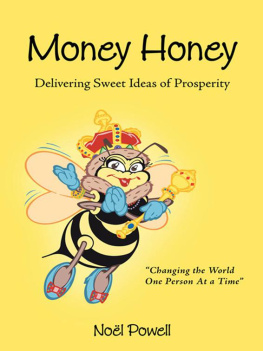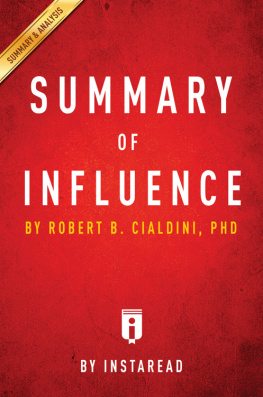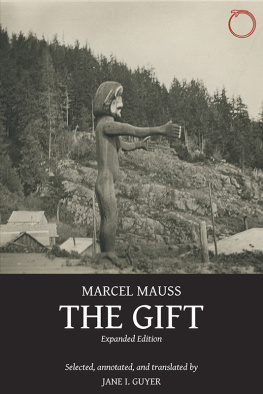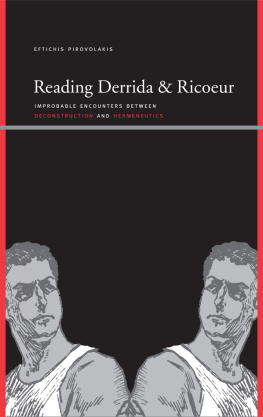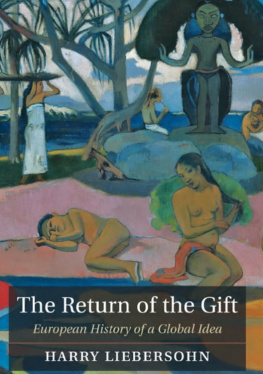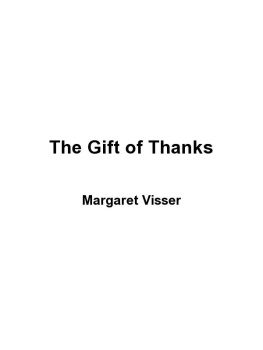THE PHILOSOPHERS GIFT
The Philosophers Gift
REEXAMINING RECIPROCITY
MARCEL HNAFF
Translated by Jean-Louis Morhange
FORDHAM UNIVERSITY PRESS
New York 2020
Copyright 2020 Fordham University Press
All rights reserved. No part of this publication may be reproduced, stored in a retrieval system, or transmitted in any form or by any meanselectronic, mechanical, photocopy, recording, or any otherexcept for brief quotations in printed reviews, without the prior permission of the publisher.
This book was first published in French as Le don des philosophes: Repenser la rciprocit, by Marcel Hnaff ditions du Seuil, 2012.
Fordham University Press has no responsibility for the persistence or accuracy of URLs for external or third-party Internet websites referred to in this publication and does not guarantee that any content on such websites is, or will remain, accurate or appropriate.
Fordham University Press also publishes its books in a variety of electronic formats. Some content that appears in print may not be available in electronic books.
Visit us online at www.fordhampress.com.
Library of Congress Cataloging-in-Publication Data available online at https://catalog.loc.gov.
Printed in the United States of America
22 21 20 5 4 3 2 1
First edition
CONTENTS
The Philosophers Gift is a precise and in-depth critical examination of the way various French philosophers and entire traditions of thought, in France and elsewhere, have understoodand misunderstoodthe concept and practice of the gift.
Marcel Hnaff was a keen reader of Marcel Mauss and Claude Lvi-Strauss, and the gift is one of the central questions in his entire work. He meant to clarify the many confusions associated with this concept, which he felt resulted mostly from a lack of awareness that the term and concept of gift actually stand for several profoundly different types of giving, one of which is the ceremonial reciprocal gift found in every traditional society.
In Continental Europe, the privileged type of giving is a different oneunilateral gracious givingand most continental philosophers have inappropriately viewed other types of giving as primitive or morally faulty versions of that type.
English-speaking countries, on the contrary, tend to focus on trade, commodities, and the economy in general. This often leads English speakers to interpret gift exchanges as primitive or peculiar forms of trade. Contributing to that misunderstanding is the fact that the English term gift, the literal and accepted translation of the French term don, is not its exact equivalent. There is such a thing as a gift shop, but there is no such thing as a boutique de dons. The term don can designate a donation or a donated good, but it cannot designate a commodity. Most often, it designates not the thing given, but the gesture or act of giving.
For Marcel Hnaff, the reciprocity implied by ceremonial gift exchangea practice unique to humans among all living beingsis the basis and guarantor of the public recognition of the other, which was the foundation of the social bond in every human society until the advent of larger societies, writing, states, the political realm, and ultimately our Modernity.
More generally, of the three types of gifts that Marcel Hnaff analyzes, none amounts or can be equated to a commercial relationship. What matters here is never the thing given, but the giver, the receiver, the gesture by which the one gives to the other, the bond that can be established between them through the mediation of the gift, and the community that this mediation can bring into being.
Drawing on a wealth of philosophical, linguistic, and anthropological sources, Marcel Hnaff develops an original and profound theory of the relationship between the self and the otheras the individual other human being, the collective other of the community and the institution, and the impersonal other of the world.
Marcel died on June 11, 2018. His body is no longer with us, but his thought isin the memory of those who knew him, and in his writings, which are available to all. It is an important thought, among the few that have the power to help us understand the world and ourselves. It is up to us to welcome it and make it ours, if we wish.
Jean-Louis Morhange
THE PHILOSOPHERS GIFT
The man who, when he gives, has any thought of repayment, deserves to be deceived.
SENECA, De beneficiis
Do to Others as you would have them do to you.
Golden Rule
Ontologically, the gift is gratuitous, not motivated, and disinterested.
SARTRE, Notebooks for an Ethics
It is not philosophers who know men best. They see them only through the prejudices of philosophy, and I know of no station where one has so many.
ROUSSEAU, Emile
First Questions
When it comes to the gift, philosophers love to be the most generous. For them the only true gift is the unreciprocated gift. According to them, to expect that Others return a gift, to call on reciprocity, amounts to pulling back the movement of giving toward oneself, thus canceling the disinterested intent that alone gives meaning to the gesture of offering. This view, however, is not shared by all philosophers; neither does it inform all of their actions. Stated in those terms, this very demanding requirement of generosity might remain out of the reach of the very thinkers who express it.
This radical claim, however, is not pure bravado. Its primary purpose is to activate critical awareness. By denying the donor any expectation of a return, it aims to proclaim that the gift as a gesture can never be identified with a commercial transaction. This requirement thus amounts to resisting giving in to self-interested considerations and to reject the domination of an economy directed almost exclusively toward maximum profit and return on investmentin other words, everything philosophers tend to call exchange, without realizing that this word also carries a wealth of noneconomic meanings. In the context of discussions on the gift, exchange is assumed to be a gesture of compensation expected and performed as a reply to a generous gesture. Some believe that the exchange originates in the givers expectation of a symbolic compensation, if only in the form of gratitude expressed by the beneficiary and sometimes inseparable from the obscure sense of a debt to be repaid. For them any form of reciprocity, even in intent, cancels the gift. Any expectation of a reply, even a nontangible one, is suspicious; it must be so because that expectation presupposes a self-interested aim through which the movement that originated in the self returns to the self. The giver is assumed to be imprisoned within the circle of sameness. This is why on this question most philosophers adamantly support the principle of gracious generosity: They categorically reject any compensatory logic. Skeptics might say that philosophers have no reason to accept such logic since doing so might make them appear petty, whereas on the conceptual level their position, while incurring no costs, brings them the admiration we tend to grant to any form of intransigence viewed as resistance to mediocrity. This skeptical position is overly ironic: The greatest moral traditions have always deemed the affirmation of the highest requirements inseparable from the fact that only a few wise beings are capable of practicing them.
We can also askthe list of the thinkers discussed is basis enough for thiswhether the questions we have raised are in fact recent ones. Clearly, they are not. A few ancient writings come to mind, such as the Gospels or Senecas


